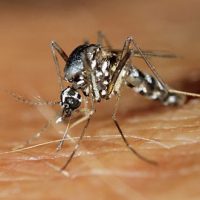
Samoa’s Ministry of Health last week declared a dengue fever outbreak following the confirmed death of a 12-year-old boy from dengue and 15 confirmed cases in the past two weeks.
An official statement from the Director General of Health, Aiono Dr. Alec Ekeroma, said they are monitoring the situation and “learning from regional trends, as neighboring countries such as Tonga, Fiji and the French Polynesia are experiencing similar dengue outbreaks.”
“We urge the public to be vigilant and work together to help prevent the spread of this disease by taking simple, yet important action,” said Aiono.
These include removing standing water around homes, buckets and containers where mosquitoes can breed.
Dengue fever is a viral illness that is spread by mosquitoes. It is transmitted from person to person through the bites of infected mosquitoes and can lead to severe infections, including Dengue Hemorrhagic Fever—a potentially life-threatening condition that may cause internal bleeding and organ failure. It can progress rapidly and may lead to death if not treated promptly.
Common symptoms of dengue include high fever, severe headache, pain behind the eyes, joint and muscle pain, and can cause nausea, rash, and fatigue.
“Severe symptoms of dengue include abdominal pain, bleeding gums, and vomiting blood—all of which require urgent medical action,” warns the Ministry.
The Ministry also urges the use of mosquito repellents, nets, and coils, especially during the day, and wearing protective clothing to reduce mosquito bites.




